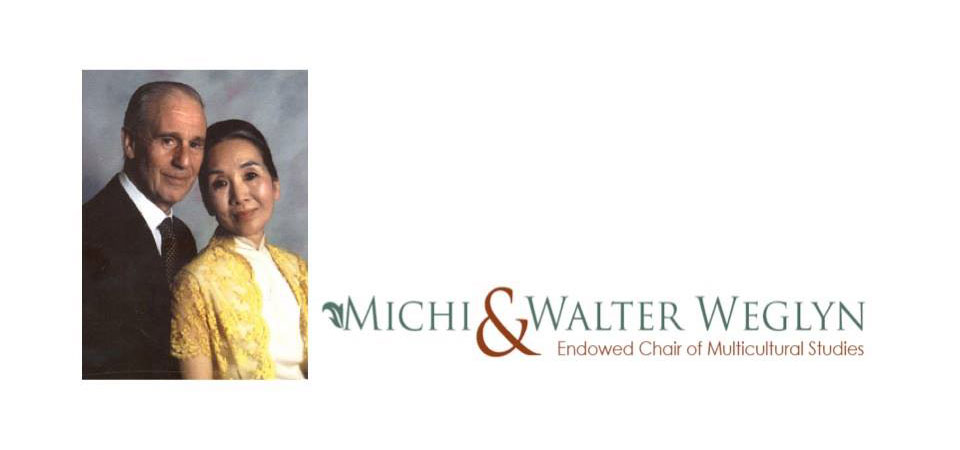For the Media

New Yorkers Honor Historian and Activist Michi Weglyn
Originally Published in the Nichi Bei Times Weekly May 14-20 2009.
By AKITO YOSHIKANE
Nichi Bei Times Contributor
NEW YORK — Dubbed “one of the most remarkable Nisei women of our time” by civil rights activist Yuri Kochiyama, community members and friends of the late historian, author and activist Michi Nishiura Weglyn gathered April 18 to remember her life and work, which included a landmark book on the World War II experience of Japanese Americans that helped to galvanize a redress movement for justice and reparations.
Weglyn’s book, “Years of Infamy: The Untold Story of America’s Concentration Camps,” was influential in debunking U.S. government claims that Japanese American wartime incarcerations were a “military necessity.”
The memorial marked the 10th anniversary of her passing at the age of 72 and was held at the Japanese American United Church. The event was part of the Day of Remembrance commemorations held in cities across the United States to observe the 120,000 persons of Japanese descent — most of whom were American citizens — who were forcibly relocated to concentration camps following President Franklin Delano Roosevelt’s issuance of Executive Order 9066.
“Michi was a lovely, well poised, very warm, kind person, who was well-read and interested in everything. She was a woman who would stand out in any crowd,” said Kochiyama, a former New Yorker, in a statement read by her granddaughter.
As one of the foremost books to chronicle the Japanese American incarceration experience, Weglyn’s grassroots efforts and research provided the factual support for the national Redress Movement, which successfully lobbied for reparations and received an official apology from the U.S. government in 1988.
Previous Supreme Court decisions upholding the imprisonment and government inquires on the Pearl Harbor attacks seemingly justified the wartime imprisonment for many Japanese Americans and Americans. Nevertheless, Weglyn spent countless hours at her own expense researching government documents and statements at the National Archives and other institutions to prove otherwise.
“She changed history by changing presumptions. She unearthed new facts,” said Phil Tajitsu Nash, an Asian American studies professor at the University of Maryland.
“The civil liberties, civil rights that she vindicated are rights that we all cherish, that we all need,” added Nash, who was also the literary executor of Weglyn’s estate.
A native of Stockton, Calif., Weglyn was born in 1926 to farmers Tomojiro Nishiura and Hisao Yuwasa. Weglyn and her parents were also incarcerated in the Gila River, Ariz. camps.
She briefly attended Mount Holyoke College before moving to New York City in the late 1940s to pursue a costume designing career working for “The Perry Como Show,” a television musical variety program. She later met her husband Walter, and together, founded the New York Day of Remembrance committee. Her husband, a Holocaust survivor, is credited for encouraging Weglyn to write the book.
A friend of Weglyn, Takako Kusunoki, was in the Granada (Amache) concentration camp in Colorado and was personally affected by her work.
“She was a very generous person,” Kusunoki said. “If there was anything you needed in terms of what happened during the war, if she had the information, she’d give it to you. She didn’t just hold everything for herself.”
Weglyn was involved in several causes, including redress for Japanese American railroad and mine workers fired after Pearl Harbor; supporting World War II Nisei draft resisters; and raising awareness about the 200,000 comfort women across Asia who were victims of sexual slavery by Japanese soldiers in World War II.
Most notably, however, her seminal book was also one of the first to mention the rendition of 2,200 Latin Americans of Japanese descent interned in the United States to be used as hostages in exchange with Japan during the war.
Her legacy continues as lobbying to pass the Japanese American Latin American Commission bill to investigate their wartime treatment is currently pending in Congress.
“The Latin Americans have not received adequate reparations and redress. The battle is not over,” said Michael Ishii, a member of New York Day of Remembrance committee.
Ishii, who said his friendship with Weglyn shaped him profoundly, said he hopes that young Japanese Americans can have the same amount of passion and commitment to their heritage as she did.
“She was the conscience of us all,” he said, “She was a New York Japanese American who loved her community."